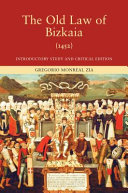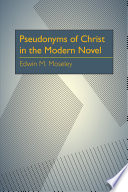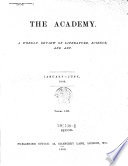Discover the best Bolivian authors in our guide, including the top poets, journalists, and novelists famous for impacting the country’s culture and history.
Latin American poets and authors have always been some of my favorite picks, especially for their emotional magic realism and passionate takes on their society’s place in the world.
For more recommendations, you might also enjoy exploring best poetry books, best American authors, or best classic literature books.
Table of Contents
Open Table of Contents
- Top Bolivian Authors To Read Today
- 1. Edmundo Paz Soldàn, 1967-
- 2. Adela Zamudio, 1854-1928
- 3. Alcides Arguedas, 1879-1946
- 4. Giovanna Rivero, 1972-
- 5. Jaime Sáenz, 1921-1986
- 6. Ricardo Jaimes Freyre,1868-1933
- 7. Juan de Recacoechea, 1935-2017
- 8. Alfonso Gumucio Dagron, 1950-
- 9. Franz Tamayo, 1879-1956
- 10. Javier del Granado, 1913-1996
Top Bolivian Authors To Read Today
1. Edmundo Paz Soldàn, 1967-
Paz Soldàn is one of the most prominent writers and professors from Bolivia. He was first published in high school, but his writing career quickly accelerated while studying International Relations in Buenos Aires. He eventually won a football scholarship for the University of Alabama and moved back to the United States in the 1990s, where he now teaches at Cornell University. Soldàn specialized in a Latin American movement called McOndo. McOndo is seen as an outgrowth of magic realism, which uses similar techniques but replaces the “magic” with surreal references to modern concepts, especially technology.
While Soldàn has written various works, two of his books have been published in English, including Turing’s Delirium. For this novel, Soldàn rewrote some sequences himself in English and changed particular key character motivations, an interesting and unusual update for a translation. Because of his comfort with the English language, Soldàn is a great place to start for English readers interested in Bolivian writers.
2. Adela Zamudio, 1854-1928
Ask students in Bolivia who their most famous poet is, and many will answer that it may be the famous Adela Zamudio, a widely known poet, and teacher. Born in La Paz to a notable family, Zamudio became a teacher of renown and later the director of a girls’ high school, the Liceo Adela Zamudio.
Zamudio lived during a key period of Bolivian history when social unrest was all too common, and their society was grappling with how to move forward. Her writing tended toward revolution and embraced the country’s growing feminism. Unsurprisingly, she was also well-known for her newspaper articles, promoting everything from democracy to the legalization of divorce.
Despite her activism, Zamudio did not earn a reputation for poetry until well into her 30s, when she published her book Quo Vadisunder the pseudonym, Soledad. She confronted loneliness, misunderstandings, longing for democracy, and anger at religion, among other topics that quickly caused a stir in the country. It was not until 1926 that she was awarded theCrown of Distinctionfor her work.
3. Alcides Arguedas, 1879-1946
Both a historian and a writer, Arguedas was one of the leading influences in Bolivia during the early 20th century. He studied law and sociology in school, actively participated in key publications, and was appointed diplomat in the early 1910s. After this, he led the country’s Liberal Party for some time and had a frequently contentious relationship with current governments. Arguedas is best viewed as a product of his time, a writer who deeply disliked Bolivia’s societal ills and treatment of natives. He also held views that would be considered racist and problematic today. His seminal work was Raza de Bronce or*Bronze Race**.
If you enjoyed our round-up of the best Bolivian authors, we have many more articles on the best authors from around the globe. Why not ?
4. Giovanna Rivero, 1972-
Born in the Santa Cruz region of Bolivia, Rivero is another excellent option for those seeking more modern Bolivian writers who have recently won international acclaim for their work. She has worked in programs at the University of Iowa and won a Fulbright Scholarship to attend the University of Florida afterward. She actively writes for Bolivian newspapers and teaches courses at the Universidad Privada de Santa Cruz de la Sierra.
Rivero has been a prolific writer, but her first notable award was for the short story collection Las Bestias. She was also awarded for the story*La Dieña de Nuestro Seuños**. This translation of *Fresh Dirt From the Grave* is a good starting place for her work.
5. Jaime Sáenz, 1921-1986
A renowned novelist and poet, Sáenz’s life – and much of his work – revolved around Bolivia’s city of La Paz, where he created what is regarded as one of the most important bodies of work in the country. Sáenz has been studied worldwide for his surrealist and deeply honest techniques. European authors, including William Black and Franz Kafka, influenced the writer. He eventually married a German citizen, Erika Käseberg.
Take a look at some of his key works, like El EscalpeloorAniversario de una vision, to learn more. Sáenz’s work is often very personal, referencing his struggles with alcoholism (which would eventually kill him when he attempted to stop drinking), his bisexuality, and his fascination with death.
6. Ricardo Jaimes Freyre,1868-1933
Although born in Peru, Freyre is typically considered a Bolivian poet, although he also spent much time in Argentina, where he eventually died. He is considered one of the fathers of South American modernism and was deeply influenced by the Symbolist movement, which favored spirituality and representing truths through specific imagery or archetypes. Those interested in Bolivian poetry should look at his notable País de Sombra, which contains some of his most famous works.
7. Juan de Recacoechea, 1935-2017
Juan de Recacoechea was born in La Paz and spent formative years in a boarding school in Spain during key moments of the Franco regime. He eventually studied journalism for several years in Paris before moving to London, then a number of other European cities, where he absorbed the culture and works of current literary greats.
Interestingly, Juan de Recacoechea studied filmmaking first and eventually started the first national television network in Bolivia, much of it his own work. However, yet another change in Bolivia’s government saw him thrown out of his position, after which he turned to writing novels with great success. English readers who want to explore his works should look to American Visa, for which he won the National Book Award.
8. Alfonso Gumucio Dagron, 1950-
Dagron’s family was actively involved in government work as his father led the party that instigated the Bolivian National Revolution in the 50s and 60s. At the same time, Dagron specialized in a wide variety of media. He has done notable work in journalism and investigation, poetry, documents, photography, and more.
Dagron’s progressive work has led to him being forced into exile multiple times, which he has used to travel the world, work for nonprofit organizations, and advocate change. It’s impressive that he has also had time to publish more than 20 books on various historical and political issues. His essay Bolivie is a good starting place, while his historical workLas Máscara del Gorilawon him a National Literature Award.
9. Franz Tamayo, 1879-1956
While many authors on our list are famous, Fran Tamayo is the only one with a province named after him. A widely admired speaker, poet, and philosopher, Tamayo was a key thinker during Bolivia’s early 20th-century development. Like Arguedas, Tamayo had what would seem to be unique concepts of race, including that races had different specialties (physical labor, intellectualism, etc.), and those of mixed race – which he was – could have multiple gifts. Those interested in his artistic work may want to start with the acclaimed Odas or*La Prometheida, o, Las Oceánides: Tragedia Lirica**.
10. Javier del Granado, 1913-1996
Noted poet laureate of Bolivia, Javier del Granado, turned his aristocratic upbringing in the countryside into inspiration for far-reaching works of poetry, novels, and many other writings. He is often considered the leading poet of the Bolivian Revolution.
Javier del Granado’s work is famous for its sweeping imagery and the important combination of Spanish with native languages for innovative, moving results highlighting the indigenous people. He has many collections of poems, including Romance del valle nuestro and Santa Cruz de la Sierra. Looking for other best authors from the nearby countries of Bolivia?





